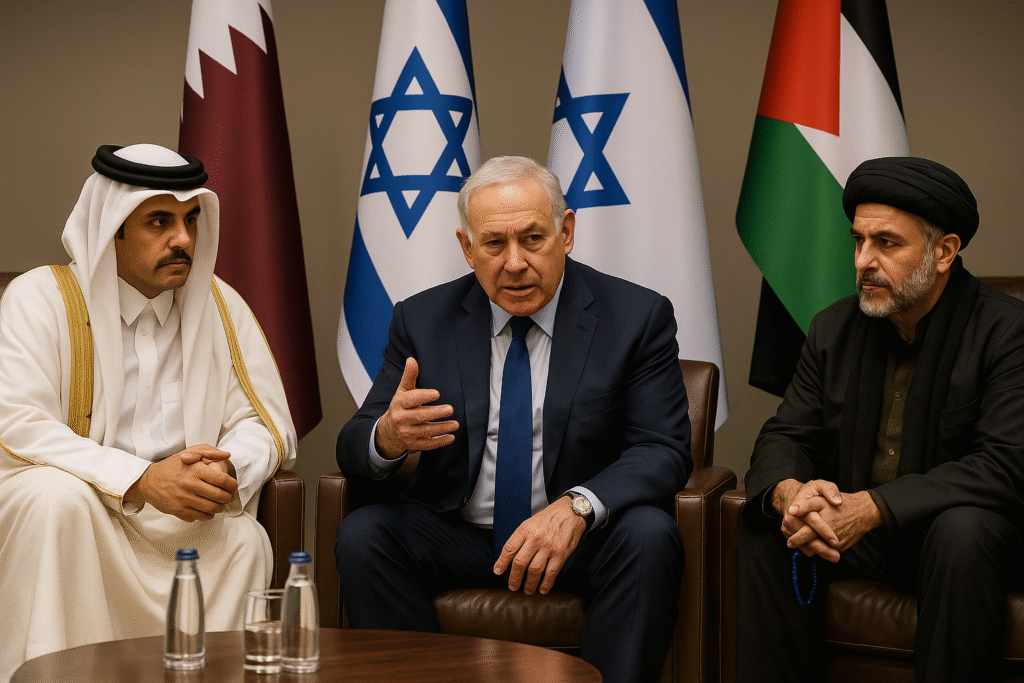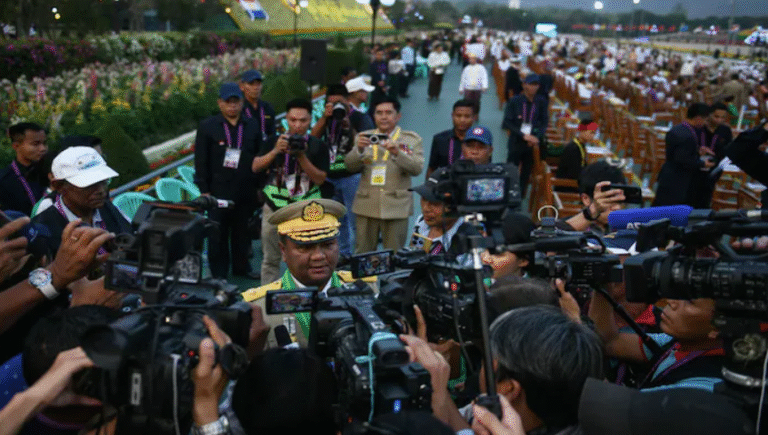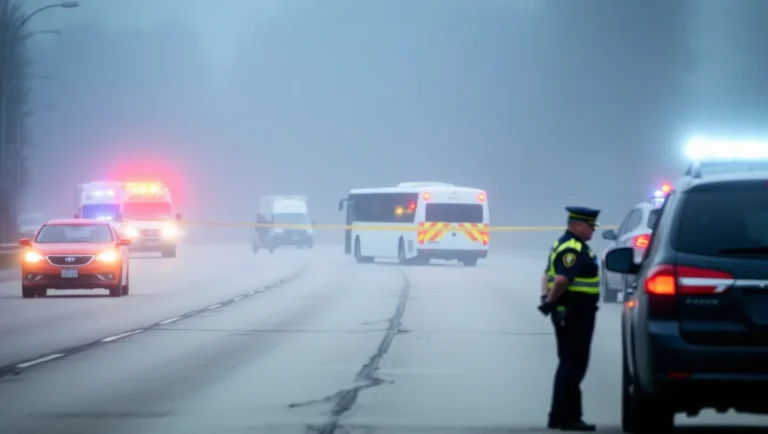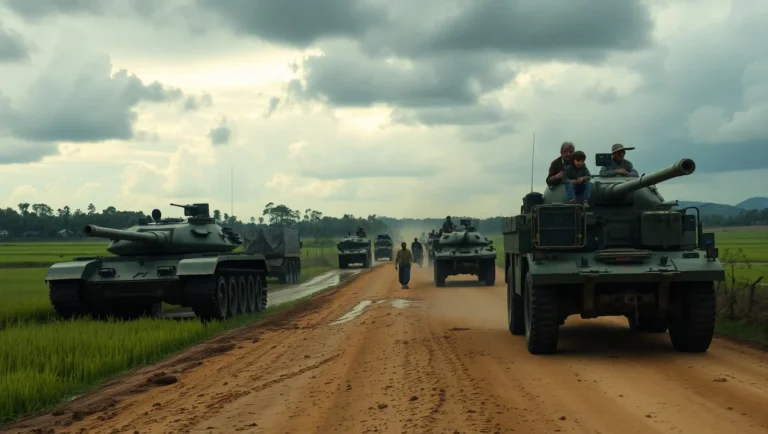
Delegates from Middle East nations convene in Doha for indirect negotiations aimed at brokering a ceasefire between Israel and Hamas amid ongoing conflict in Gaza, July 2025.
Doha, July 7, 2025:
Hopes for a breakthrough in the ongoing conflict between Israel and Hamas were dampened this week after the first round of indirect ceasefire talks in Qatar concluded without tangible progress. Sources familiar with the negotiations confirmed that while discussions took place in the Qatari capital, both sides left the table with no formal agreement.
According to two Palestinian officials close to the process, the Israeli delegation arrived without the necessary authority to finalize a deal. “After the initial session of indirect discussions in Doha, the Israeli negotiators did not have a mandate strong enough to reach a conclusive agreement with Hamas,” the sources revealed.
The talks, mediated by international officials, are focused on halting the fighting in Gaza and addressing humanitarian concerns, as well as negotiating a possible hostage exchange. An official involved in the process stated, “Negotiations revolve around how to implement a ceasefire and arrange the release of hostages, with proposals and counter-proposals being shared through intermediaries.”
The ceasefire discussions restarted on Sunday, ahead of Israeli Prime Minister Benjamin Netanyahu’s scheduled visit to Washington — his third meeting with U.S. President Donald Trump since Trump’s return to the White House six months ago. Before leaving for the United States, Netanyahu publicly stated that Israel’s negotiators had been given clear instructions to work toward a ceasefire, but only under terms acceptable to Israeli leadership.
Meanwhile, public pressure within Israel has intensified. Over the weekend, large crowds gathered in Tel Aviv near the Defense Ministry, calling for the immediate return of the hostages still held in Gaza and for leaders to prioritize a ceasefire deal. Demonstrators waved Israeli flags and displayed posters featuring the faces of those kidnapped during the war.
The conflict, which erupted on October 7, 2023, following a surprise attack by Hamas militants on southern Israeli towns, has left deep scars on both sides. That initial assault resulted in the deaths of approximately 1,200 people and the abduction of 251 hostages, according to Israeli government data. While the majority of the captives have since been released through diplomatic efforts and military operations, officials estimate that around 20 remain alive in Gaza.
In response to the attack, Israel launched a prolonged military campaign in the Gaza Strip, leading to widespread destruction, displacement, and a dire humanitarian crisis. The health ministry in Gaza reports that over 57,000 Palestinians have died in the ensuing months. The conflict has left the enclave’s infrastructure in ruins, forced nearly the entire population to flee their homes, and created severe shortages of food, water, and medical supplies.
As international mediators continue their efforts to broker peace, the situation on the ground remains volatile. Aid agencies have sounded alarms over rising hunger, disease outbreaks, and the collapse of essential services. World leaders, including U.S. officials, have urged both parties to reach an agreement to prevent further loss of life and to open pathways for humanitarian relief.
Despite the inconclusive results of the first session in Doha, sources indicated that talks are expected to resume in the coming days. Diplomats and analysts remain cautiously optimistic that continued dialogue could lead to a resolution, albeit a fragile one, in the weeks ahead.
The situation continues to develop, and the international community watches closely for signs of progress in this long-running and deeply complex conflict.


